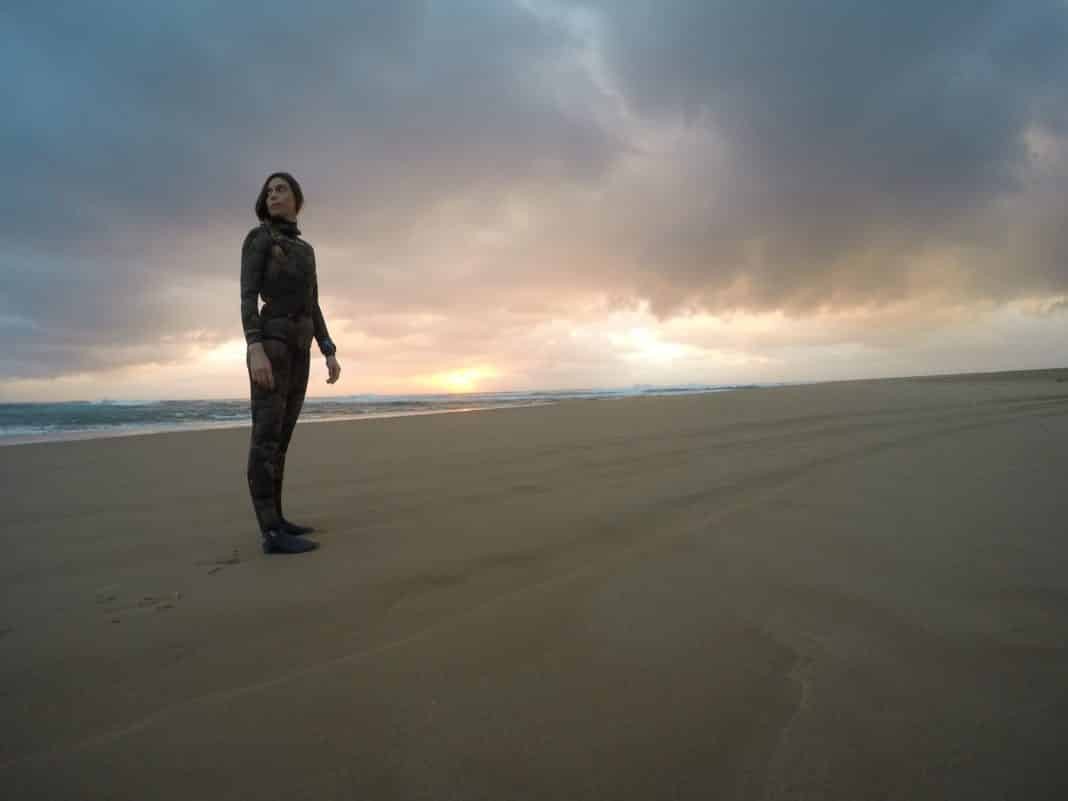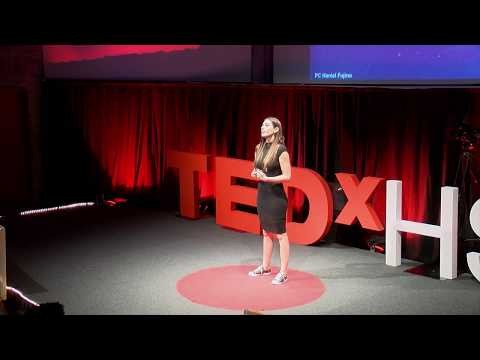Valentine Thomas’s aspirations weren’t always focused on the ocean. Before she completely switched gears to pursue a freediving lifestyle, the French-Canadian worked at a hedge fund in the UK. After a trip with friends introduced her to both freediving and spearfishing, she was hooked.
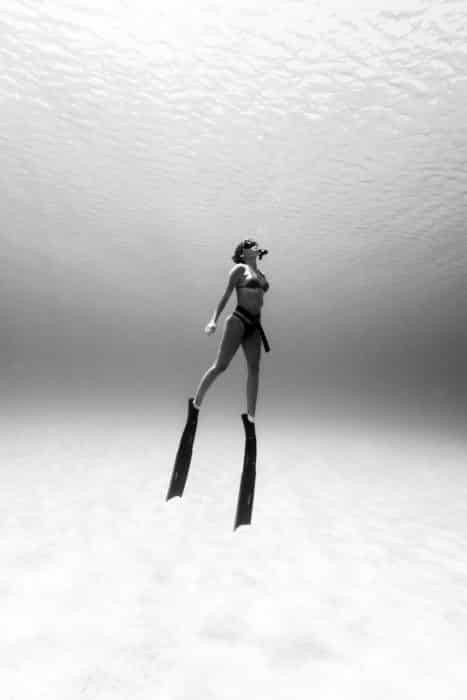
Now she has made it her mission to bring awareness to the general public about making more informed choices when it comes to seafood consumption.
We spent some time with Valentine to understand how she developed this passion and calling.
DeeperBlue.com: How long have you been freediving and spearfishing?
Valentine Thomas: I started freediving in 2011, so 8 years ago, and picked up spearfishing a couple of months after that.
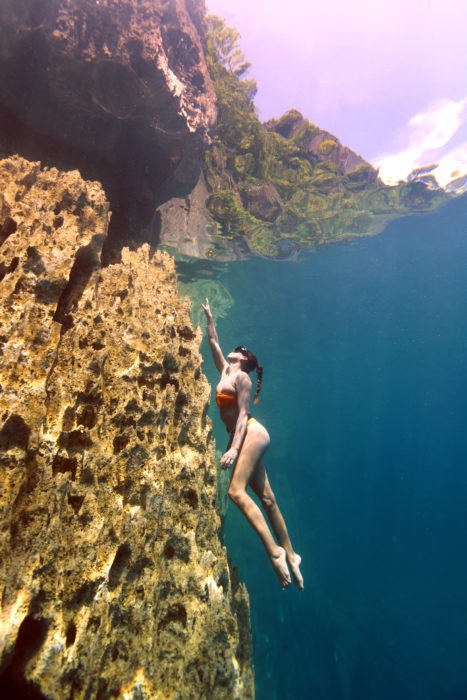
DB: Where did you first spearfish?
VT: <laughing> In a super-elite and advance destination Ascension Island, in the middle of the Atlantic.
DB: In 2013 you achieved a world record for spearfishing. Can you describe what that was like?
VT: It was luck more than anything else, to be honest, and I knew that, but I was very excited, nonetheless. It encouraged me to push through the fear I was feeling in the water and it gave me the mental motivation to better myself in the water.
DB: We know you do not participate in freediving competitions, but do you know how long you can hold your breath underwater?
VT: My static is 5:45, which I’ll never do again because static breath holds are terrible, haha!
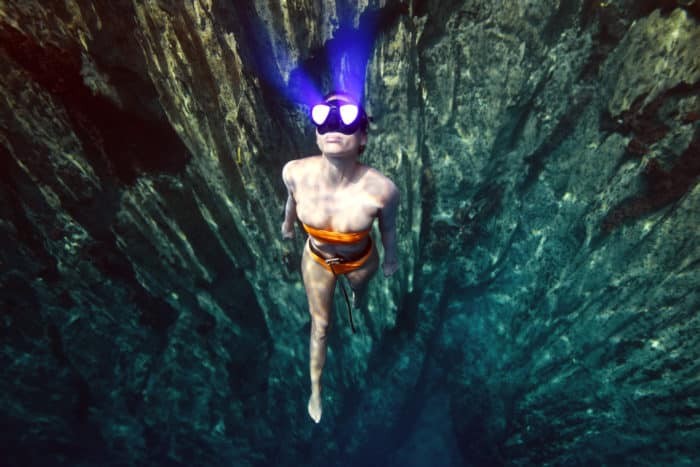
DB: Previously you worked as a lawyer, what was your motivation for switching paths and pursuing this as a career?
VT: It was a process of self-discovery if that makes sense. I’ve always thought that I wanted a certain path in life, a successful career, big house, luxury car, and spearfishing unexpectedly changed that. I am not born near the ocean and I always bought my food at the grocery store without thinking much about it, so my love for catching my own food really caught me off guard, to say the least. It brought me a new sense of happiness that I didn’t know existed. I was discovering a new world that was so far from what I have ever experienced, but also that brought me happiness in a new way that I didn’t know was possible – through simplicity and connection with nature. When I was hired to film a documentary in Africa in 2016, even though I was paid barely anything, it’s when I realized that loving what I do was a necessity. Then I discovered that success within that was just upon the amount of work I was willing to put in.
DB: You have said before that you only catch what you eat. Can you describe more about eating sustainably?
VT: When I started this lifestyle, I was starting to become conscious of what I was eating. It’s also when I realized that we had not only no information but also a lot of false information, as consumers to make better decisions. I made it my life mission to fill that gap. For now, there are a few things that you can do to consume more responsibly:
1 – ask questions to your fishmongers, where it’s from, how it was caught, etc. Consult apps to ensure you aren’t encouraging the wrong practices.
2 – Vary the specie you eat. My favorite fish aren’t fish I’ve heard of before. Be adventurous at the grocery store.
3 – Try to pick eco-labels when you can (MSC, Ocean Wise, Greenpeace, etc.). Don’t be fooled by greenwashing and certification without a reliable organization to back it up (Wild-caught, responsibly sourced, sustainable on a package means nothing and is self-declared).
DB: You have traveled the world speaking as an advocate for ocean sustainability. Is there one experience that stands out from the rest?
VT: One of my first trips, Zanzibar, Tanzania. I was talking to a local fisherman hoping to tell him that the use of fishing nets on the coral reef was highly destructive (I was seeing a lot underwater). We discussed for a while and he explained that due to tourism, the price of food increased so much that he couldn’t feed his family anymore. I realized that commercial fisheries have a huge social impact that needed to be taken into consideration in order to create positive changes. This is what pushed me to read on the subject in a deeper depth to understand what was going on and try to figure out an actual realistic and viable solution.
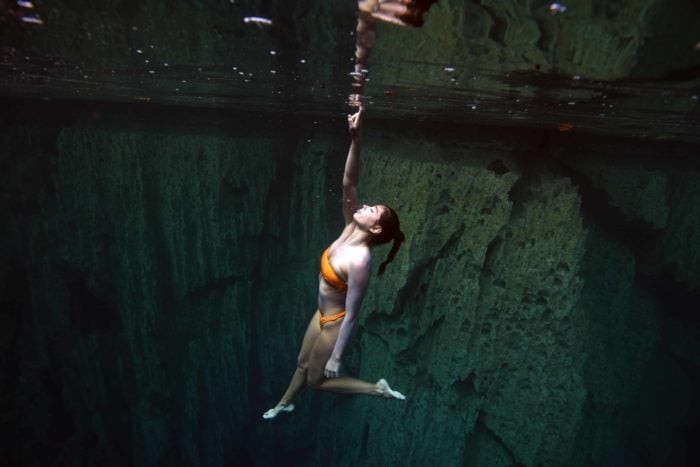
DB: What would you say is the greatest threat to fish populations?
VT: Waste! We estimate seafood waste at about 2/3 of what’s being caught. This is due to our demands as consumers and our obsession with a very small number of species. This is why it is crucial to vary our diet when it comes to seafood and go away from the big 4 (salmon, seabass, cod, tuna).
DB: What is a small step individuals can take to make a difference?
VT: Eat seafood twice a week only. Look for ecolabels. Vary the species. Consult mobile apps (seafood watch is a good one until I get mine out hahaha!)
DB: Is there anything else you would like to tell us?
VT: We need to stop thinking that we are above the ecosystem and start considering ourselves as part of it. We have a duty, being on top of the food chain, to take care of what’s around us. That doesn’t mean to go catch your own food on the weekends, it only means to be mindful and to use technology in a way that’s not detrimental for the planet, just because we are becoming lazy. Your life won’t be a disaster for you to change certain habits. Oh and if you hate your job, the planet is a disaster right now, become an entrepreneur and make the world a better place, the possibilities are endless.

